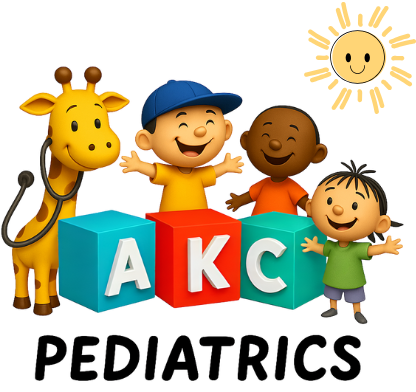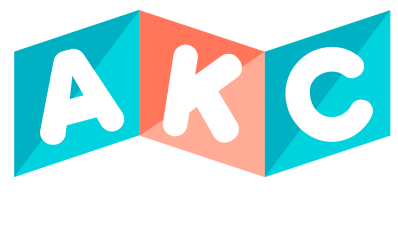Sore throats are common among children. Sometimes it could cure on its own, whereas at other times, you may have to take the kid to a medical specialist. Determining when it’s serious and when not could be challenging.
So here we bring you some details about common infections that cause sore throat.
The Common Cold
In most instances, viral infection such as the common cold is the reason behind a sore throat. Most commonly, this type of infection comes during the winter. But sometimes, the kid gets this viral infection any time of the year. That means you can’t always blame the season. Other cold virus symptoms may include a fever, runny nose, and cough.
A sore throat from a cold virus is unlikely to go with antibiotics. Such infections usually go by themself in 7 to 10 days.
The best treatment for such a cold virus causing sore throat is to keep your child warm. Fluids also work as a natural treatment. Ensure your child is drinking plenty of water and is getting good sleep. These natural treatments work well for all ages, and good medical practitioners highly suggest using these techniques to recover from cold and sore throat.
Hand, Foot, and Mouth Disease
Hand, foot, and mouth disease may come from enteroviruses. This virus is generally highly active during the fall and summer, with slight effectiveness during other months.
This virus also causes sore throat or mouth pain, followed by rashes – tiny red bumps and blisters – appearing on the feet, hands, buttocks, or around the mouth.
Sores and blisters in the throat or mouth cause pain when you swallow. Like other viral infections, antibiotics can’t treat this type of sore throat. However, pediatricians may recommend Acetaminophen or Ibuprofen to help with the pain and fever.
Other natural treatments for this virus include increasing water intake and resting at home until the sores heal.
Strep Throat
Strep throat is another reason behind the sore throat. It’s an infection caused by the bacteria Streptococcus Pyogenes. It’s most commonly seen in Children aged 5-15 years old are the usual victims of this virus. It typically appears in the early spring and winter months.
Nearly 20-30% of throat infections among children come from strep throat.
Strep throat symptoms may include sore throats, pus on tonsils, difficulty swallowing, swelling of the glands, and fever. Sometimes children may also experience stomachaches, headaches, or migraines. You may also witness a red, sandpaper-like skin rash on their body.
Older children may not get symptoms like runny nose and cough and still may have this virus.
This virus is uncommon in kids. But if your kid gets it, the symptoms could be much different than those described above. It’s always good to visit your infant’s pediatrician. The pediatrician may prescribe antibiotics for strep throat or suggest treating it with home remedies, such as drinking plenty of fluids, rest, etc.
Why Must You Know the Difference?
Sore throats commonly come from viral infections and don’t go quickly by using antibiotics but naturally go in a few days. Although, antibiotics help speed recovery and reduce the risk of contagiousness and reduce the chance of developing complications related to the strep throat infection.
The most significant problem to be aware of is the acute form of rheumatic illness, a disease that could cause damage to joints and the heart. Antibiotics are essential for treating bacterial infections, but they come with their dangers, such as diarrhea, yeast infections, allergic reactions, and the formation of resistance to antibiotics.
That’s one of the significant reasons why pediatricians don’t recommend taking antibiotics while suffering from viral infections.
How to Diagnose and Treat Sore Throat?
The doctors can diagnose a sore throat only after examining the kid. And only then conclude if the problem comes from a viral infection.
Doctors’ best technique to treat sore throats is ensuring that your child gets proper rest and drinks ample fluids. In rare cases, your pediatrician might suggest acetaminophen or Ibuprofen to help ease the pain and fever. For foot, hand, and mouth diseases, doctors highly recommend keeping the kids at home until the blisters begin to heal since it’s contagious and may pass the virus to other kids.
In cases of possible strep throat, the doctor might tap the back of your child’s throat to collect some samples.
Pediatricians can conduct the test quickly for strep throat, providing results in around 10 to 15 minutes. If the results are negative, the pediatrician may refer the test results to a lab to reproduce the bacteria. The doctor might diagnose the kid with strep throat if any tests are positive. If both tests are negative, your child is saved from strep throat.
Preventing Illnesses that Cause Sore Throat
Sore throat is generally caused by bacteria and viruses, which are easily transmitted from person to person through water drops from the air – when you sneeze or cough. It can also be transmitted by direct or indirect touching the uninfected ones. Kids are highly prone to catching these viruses since they usually don’t understand the science behind them.
Staying neat all the time is one best things to do to protect the child from getting infected. Make a habit for your child to frequently wash hands to stay protected. But avoid developing a fear of viruses and germs that may cause a sore throat and other diseases. This fear can lead to OCD, an anxiety type that may start another problem.
Also, make a habit of regularly cleansing your infant’s toys. Sharing is caring, but not sharing toothbrushes, cups, and towels.
When to Call the Pediatrician?
Determining the seriousness behind sore throat is sometimes painful, especially if your infant or toddler. However, preschoolers and elders can share their pain, making it easier to treat them at home. But if their problem goes beyond the maximum virus life, it’s better to take the child to a doctor.
Lastly, we highly suggest keeping your kids clean, ensuring they take suitable fluids, and eating healthy.
Keeping in touch with a pediatrician is always suitable for raising smart and healthy kids. These medical professionals will guide you on all the techniques to upbring healthy and intelligent kids.





